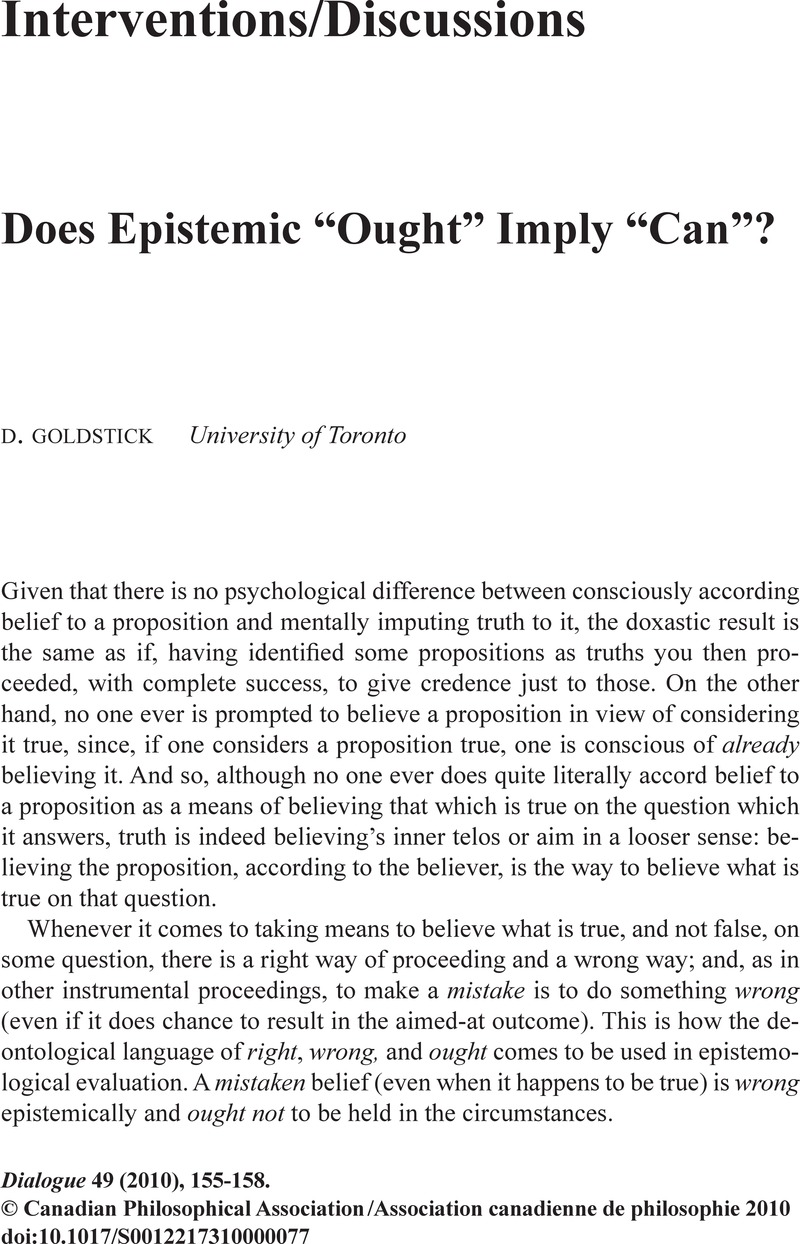No CrossRef data available.
Published online by Cambridge University Press: 07 May 2010

1 Plantinga, Alvin, Warrant: The Current Debate (Oxford: Oxford University Press, 1993), p. 44CrossRefGoogle Scholar.
2 See Goldstick, D., “Cognitive Reason,” Philosophy and Phenomenological Research 52, no. 1 (March 1992): 121–2CrossRefGoogle Scholar. In that article I argue that our “reason” should be understood in this connection as the ensemble of our reliable natural doxastic dispositions. At that rate, rationalism will be the logically contingent thesis that no available alternative way of fixing belief is ever going to be as good at giving us true, and not false, beliefs.
3 See Goldstick, D., “Immorality with a Clear Conscience,” American Philosophical Quarterly 17, no. 3 (July 1980): 248Google Scholar.